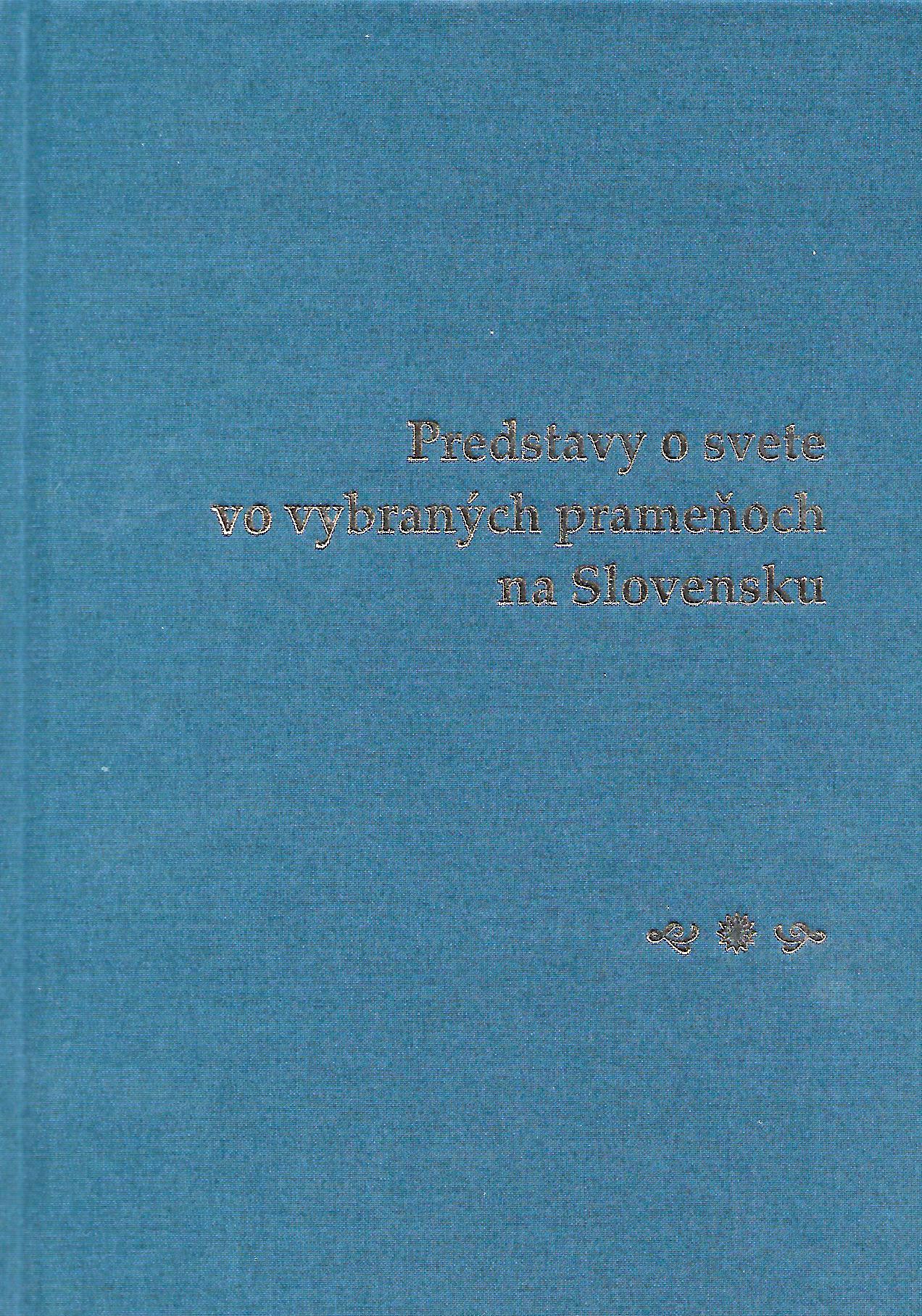Predstavy o svete vo vybraných prameňoch na Slovensku
Slovenský komitét slavistov, Slavistický ústav Jána Stanislava SAV, v. v. i.
Published: 24. 6. 2023
About monography:
The book World View in Selected Sources in Slovakia presents a Picture of the continuity of cultural and historical thinking, collective historical memory, and the spiritual dimension of human nature, the needs of which are met through profane and sacred knowledge about the world. Human beings have a constant need to fill their lives with a variety of knowledge gained through social interaction, i.e. cultural contacts. The natural human question of the origins of human life is therefore not reduced to the private sphere of the individual, as it creates an associative theme of the search for the meaning of human life and the reasons for specific human actions in the context of the human community, the genus, the family, the nation. The relationship between the individual and society is expressed in a variety of connections based on the law, duties and decisions of the members of society. It is this level of knowledge of social interaction that is necessary to understand the oppositional categories of good and evil, right and truth, love and dislike. Social cohesion in a diversity of relationships creates an image of collective cultural memory and historical identity.
The traditional human mentality, reflected in folk religious beliefs, has influenced the formation of social relations and the construction of power. Cultural and social values are reflected in language as a carrier of the concepts of worldviews. On the basis of their analysis, it is possible to reconstruct the main features of the functioning of society in the pre-Christian past and in the collective cultural memory as a whole. Cultural memory is an important identifying element for a society, as it preserves the memory of various historical, religious and social events and shapes their perception in the cultural memory of the society. Memories of events are often captured in literary texts of a religious or secular nature.
Written sources, as monuments of verbal culture, are important material for the study of the cultural memory of a society. Their echoes can be seen in a variety of texts based on Christian tradition and faith. Christian texts, although based on a certain ideological doctrine, often take the form of folk narratives full of stories about various forms of supernatural (divine) intervention in human actions.
The oral and written text may change the main storyline, but the semantic content in the context of the cultural thinking of the society remains unchanged. Therefore, written and oral narratives are equivalent in content; not only do they have their own expressive means (language and writing) that can be scientifically described, but also, in terms of the actual capacity of the creator, they express the content of speech communication. The idea of the formation of consciousness can therefore be justified in the context of historically verifiable events.
In general, it can be claimed that society's cultural memory of its organisation is based on the interaction of images and symbols of anthropocentric reasoning about the spiritual and material world of man. Traditional customs and values among Slovaks are also based mainly on a symbiosis of Christian and pre-Christian, mythological perceptions. However, traditional folk customs are not rooted only in spiritual culture. A decisive role in interpreting written sources is played by understanding all features and phenomena of language, which is used as a tool of communication in individual literary and narrative genres. Narrative texts are the product of the collective cultural consciousness rather than the individual. More important in this context is the experience of society, from which the primary orientation in the semantics of individual expressive (linguistic and symbolic) means is formed.
However, understanding the semantic content of individual images, symbols and concepts already requires a critical level of perception of the content, which is linked to the constantly evolving cultural consciousness and memory of society.
Details:
272 pages
Language: Slovak
About edition:
Publishers: Slovenský komitét slavistov, Slavistický ústav Jána Stanislava SAV, v. v. i.
Edition: 1.
Edition place: Bratislava
Edition year: 2023
ISBN 978-80-974276-1-0 (print)
Book type: monography
How to cite:
ISO 690:
Žeňuch, P. - Šašerina, S. - Brtáňová, E. - Žeňuchová, K.: Predstavy o svete vo vybraných prameňoch na Slovensku. 1 vyd. Bratislava : Slovenský komitét slavistov, Slavistický ústav Jána Stanislava SAV, v. v. i.. 2023. pp. 272. ISBN 978-80-974276-1-0.
APA:
Žeňuch, P., Šašerina, S., Brtáňová, E., Žeňuchová, K. (2023). Predstavy o svete vo vybraných prameňoch na Slovensku. Bratislava : Slovenský komitét slavistov, Slavistický ústav Jána Stanislava SAV, v. v. i.. ISBN 978-80-974276-1-0.






